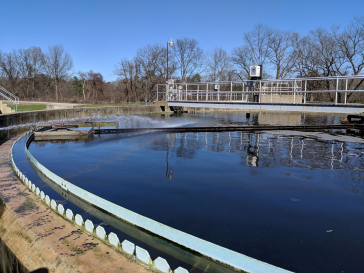
New Hampshire’s limits newly set on four PFAS chemicals is the most stringent in the nation. This landmark legislation makes New Hampshire the first state to require routine testing of four PFAS chemicals in local water systems, landfills, and wastewater plants. The PFAS chemicals included are the more widely known health threats PFOA and PFOS as well as the lesser-known PFHxS and PFNA. Testing will begin in October and likely affect water management in many sites around the state.
Identified sites will be required to test for PFAS on a quarterly basis to determine its presence in water distributed for consumption or discharged into the ground. If the PFAS levels exceed the new standards of a limit of 12 parts per trillion on PFOA, down from an initial proposal of 38 ppt; 15 ppt for PFOS, down from 70 ppt; 11 ppt for PFNA, down from 23 ppt; and 18 ppt for PFHxS, down from 85 ppt, planning for ways to remove it must begin. Possible solutions include procuring clean water from another source or installing filtration systems on existing supplies. The new limits were determined based on research completed in Minnesota that underscored how harmful currently allowed levels are to fetuses in the womb or breastfeeding babies.
While the debate about the feasibility of meeting the demands of these new levels is expected to continue, particularly in light of the projected cost increase of $190 million over the next two years, the assistant commissioner of the Department of Environmental Services reminds residents of New Hampshire’s tradition of inventiveness and frugality.
New Hampshire has joined the ranks of other states and communities that have sued PFAS producers 3M and DuPont as well as other makers of PFAS-based firefighting foams, often a central source of contamination on military bases. The lawsuit alleges negligence since the chemicals were allowed to contaminate New Hampshire’s natural resources. PFAS are known as “forever chemicals” because they build up in the body with serious health impacts and take many decades to begin to break down in the environment. Serious health impacts include lowered effectiveness of the immune system, liver and kidney disease, high cholesterol, reproductive and developmental problems, and some cancers with more research underway on carcinogenic impacts.

